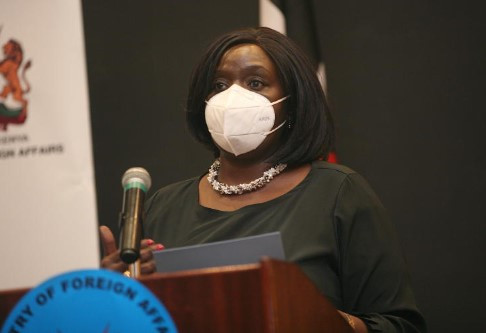×
The Standard e-Paper
Kenya’s Boldest Voice

Foreign Affairs Cabinet Secretary Ambassador Raychelle Omamo. [Wilberforce Okwiri, Standard]
Foreign Affairs Cabinet Secretary Raychelle Omamo is among four candidates battling for the presidency of the International Fund for Agricultural Development (IFAD).